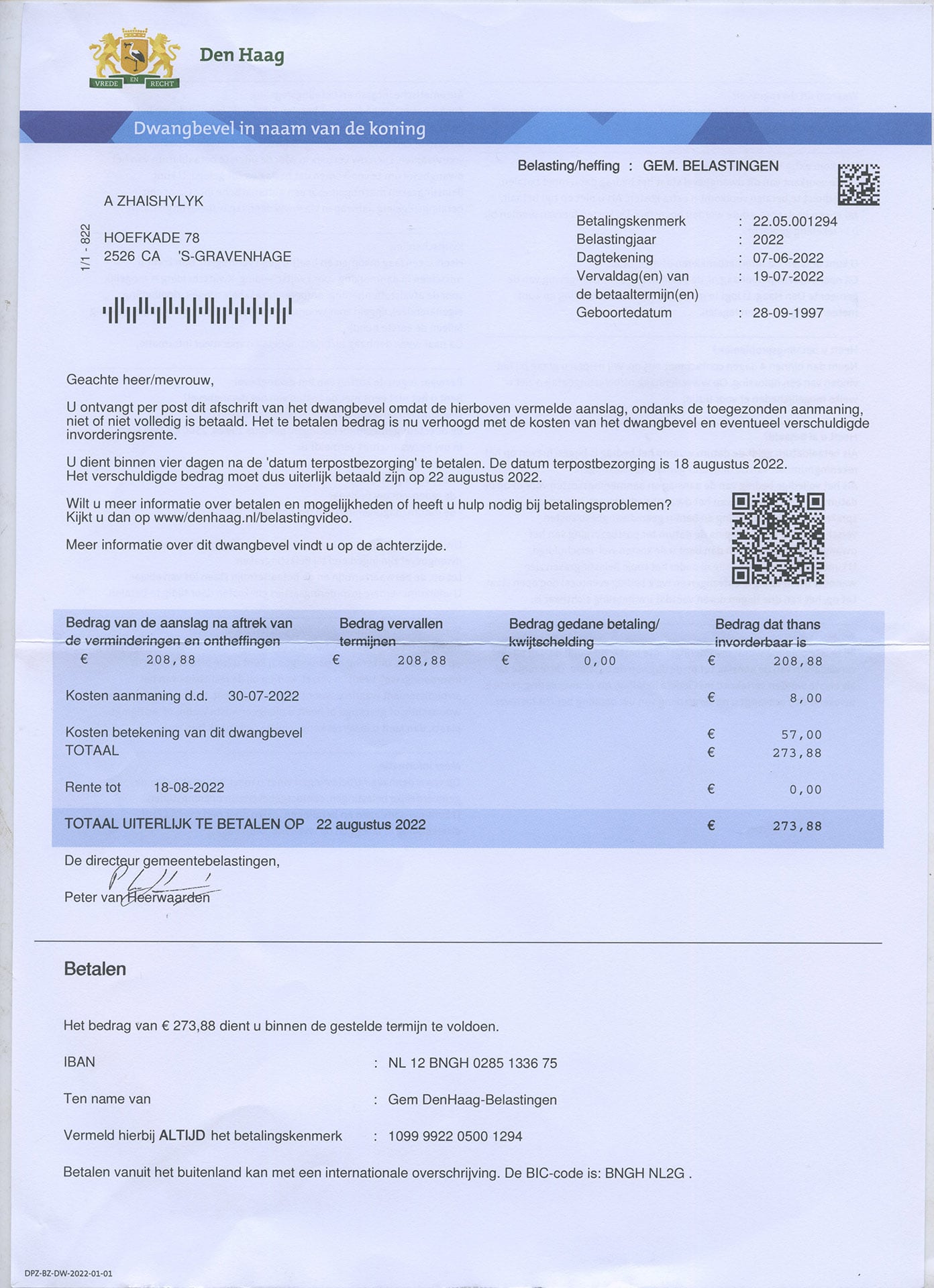

The translation of the document tells me to pay a tax for the trash. However, it doesn’t make the information any clearer or digestible. It does not elaborate on the reason I have to pay this amount and why I am obliged to do so as an expat student. My need for an explanation would result in more paperwork and time. Bureaucratic apparatus forms its own closed specific language existing within its group, but it is not open to other citizens who do not have access to decision-making because of their limited ability to express their political opinions and demands, which also contributes to the exclusion of citizens from the political process.
This specific language is called Officialese. Where it is possible to use a simpler word, a cumbersome special term is used instead. It unnecessarily ‘explains’ something that in the circumstances did not need to be explained at all. It is done in order to be as clear as possible, to prevent any ambiguity and emotional elements. Therefore, bureaucracy develops more successfully the more ‘dehumanized’ it is.
The unofficial general principles of Officialese:
1. It is preferable to use sentences without subjects.
2. It is not recommended to use the active voice, preferably the exclusive use of the passive.
3. It is not recommended to use first person pronouns and other forms of self-reference.
4. It is recommended to soften emotionally colored expressions.
5. Book words and phrases should be preferred to colloquial ones.
6. If possible, it is required to insert into the edited text as many diverse and multidirectional tautologies and lapalissades as possible.
This trash tax paper holds the edge between clarity and vagueness perfectly. The content and the language is full of managerial nomenclature. Its design is not set in order to be more legible and communicative, but rather set by the administrative apparatus. This activity of depersonalized rules that contains an ‘algorithm’ of actions is what this paper is, and represents the bureaucratic system as a whole. It is an example of pure unity of form and function. And here the dialectic occurs.
The theory proposed by Nietzsche in ‘The Birth of Tragedy’ is the division into Apollonian –sleep, the principle of individuation, balance and order, rationalism– and Dionysian –intoxication, communion with the original unity, ecstasy and anarchy, tragedy, overcoming rationalism– principles. 2.